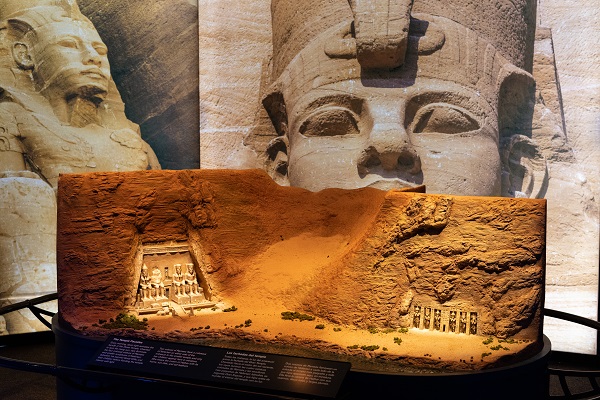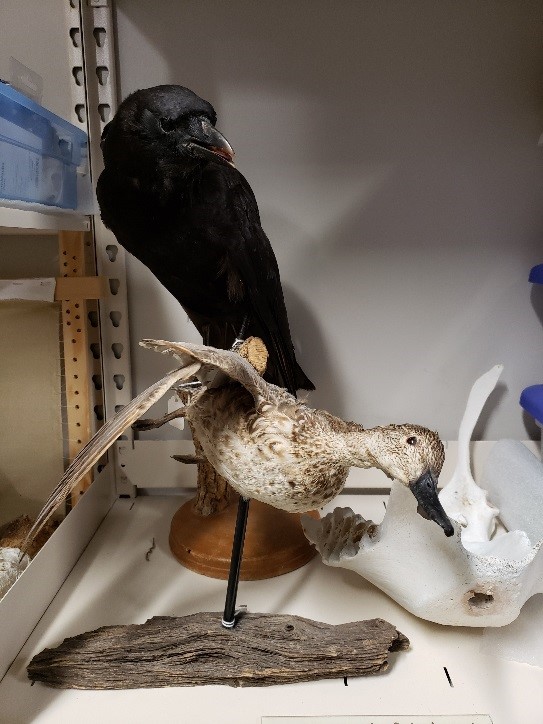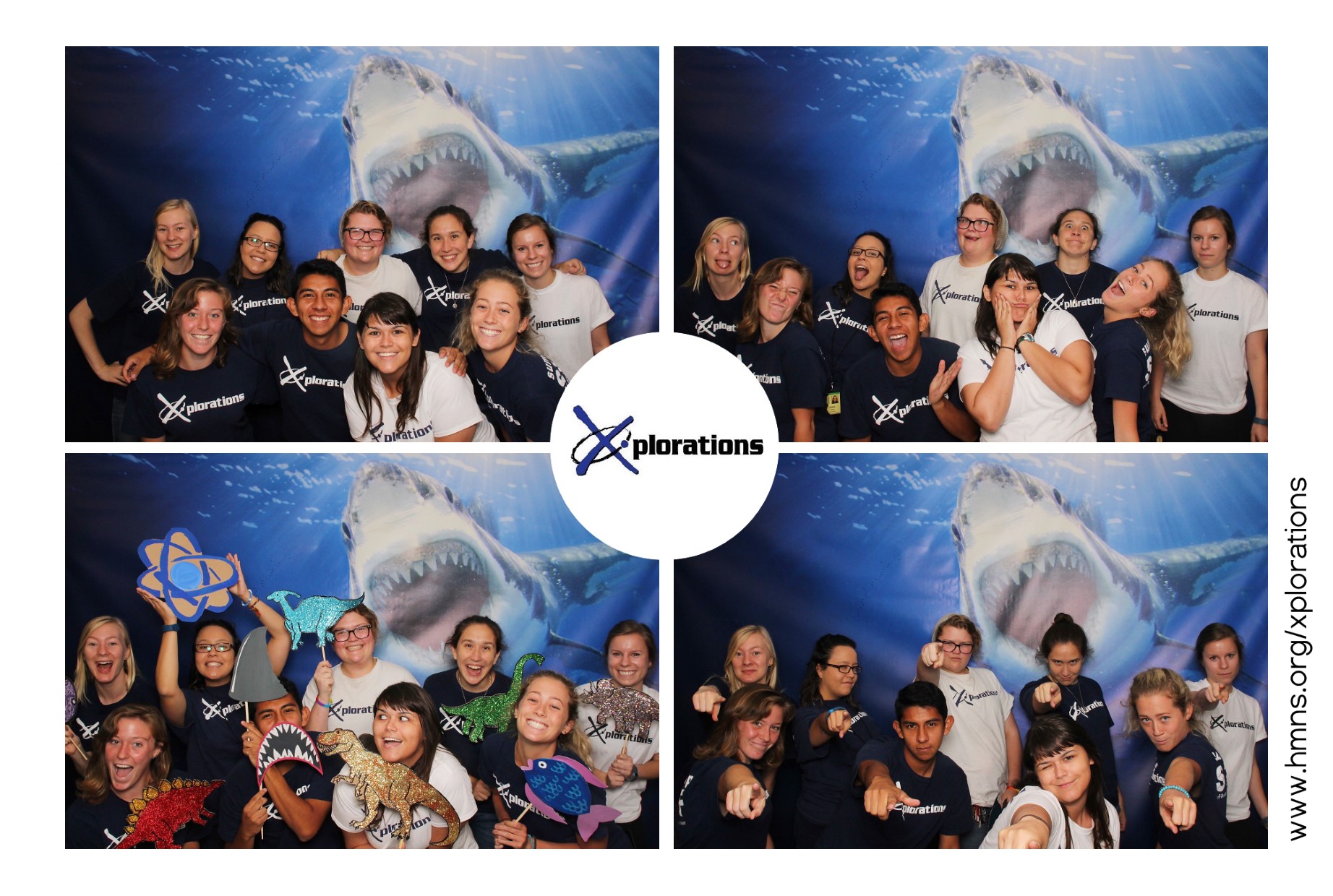Disclaimer: This fictional story was written by Julia Russell in Youth Education Programs.
Hello everyone,
My name is Julia, and it’s hard to believe that it’s been two years since I started my research as a graduate student at HMNS. It really seems like it was just yesterday…
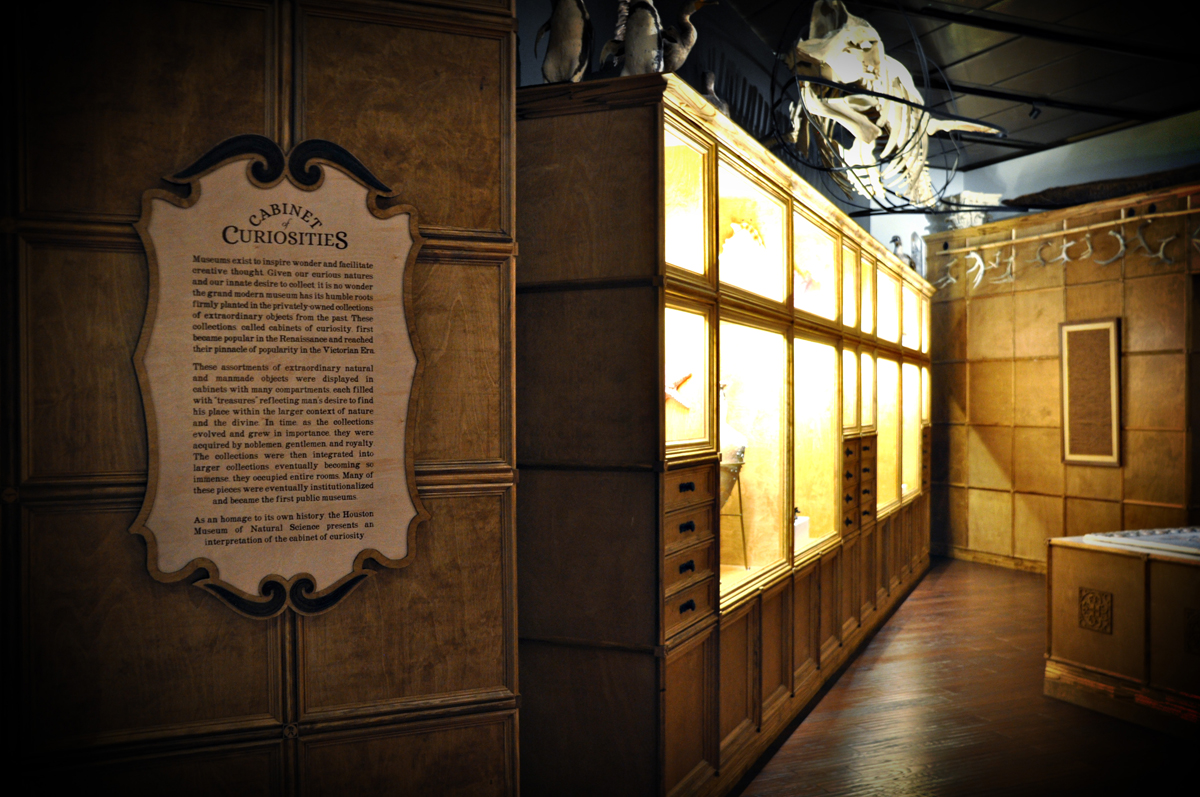
I’ve loved museums since I was a child. I was always fascinated by the huge and impressive collections museums were able to acquire. It’s a curiosity of mine that has never fully disappeared. Being a mini-museum connoisseur growing up, I had many of my own collections. I had the traditional stamp collection. I had the cumbersome rock collection. (Gathering new specimens for my collection probably wasn’t the highlight of our family vacations for my parents.) I eventually moved on to collecting books about my two favorite topics: sharks and dinosaurs. This also led to a lot of “excavations” in my backyard. I was fairly unsympathetic about destroying the landscape of our backyard when I was on a search to uncover the greatest dinosaur fossil ever found. I never actually found it, but I did triumphantly reassure my dad that the numerous holes in the backyard were in the name of science and discovery!
Eventually, I decided to study history and biology at the University of Fibonacci. Throughout my time as an undergraduate student, I tried to find career paths that would let me combine my dual interests in the humanities and the hard sciences. The one place I could bring these two passions together? A museum! In keeping with my childhood, I continued to marvel at the world’s museums and their Impressionist paintings, ancient Greek pottery, dazzling gems and minerals, mummies, fossils, and so much more. The one question that began to echo through my mind as I visited these institutions: why do we collect? What drives people to create collections? Is it human nature to collect? Since four years of undergraduate work wasn’t nearly enough time to satisfy these questions, I decided to pursue a graduate degree at the University of Noneya to explore the art of collecting a little further.
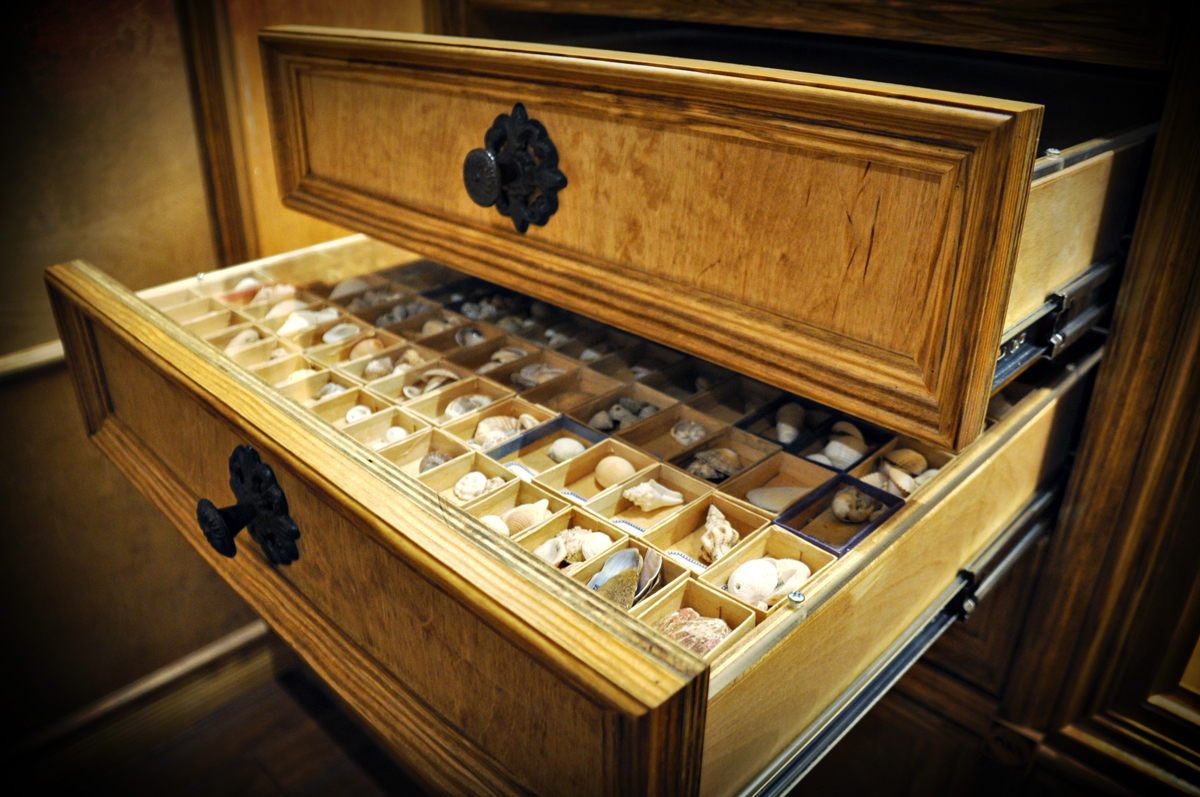
To better understand why, I had to start with when. At what point in our history did we start collecting? If I could find a starting point, I had a better chance of understanding the why. As it turns out, the practice of collecting is as old as humans themselves. The concept of collecting in an effort to better understand the natural world around us seems to be an inherent part of our human nature. In all of my studies, there was one particular collection that struck me: the collection of Ferrante Imperato.
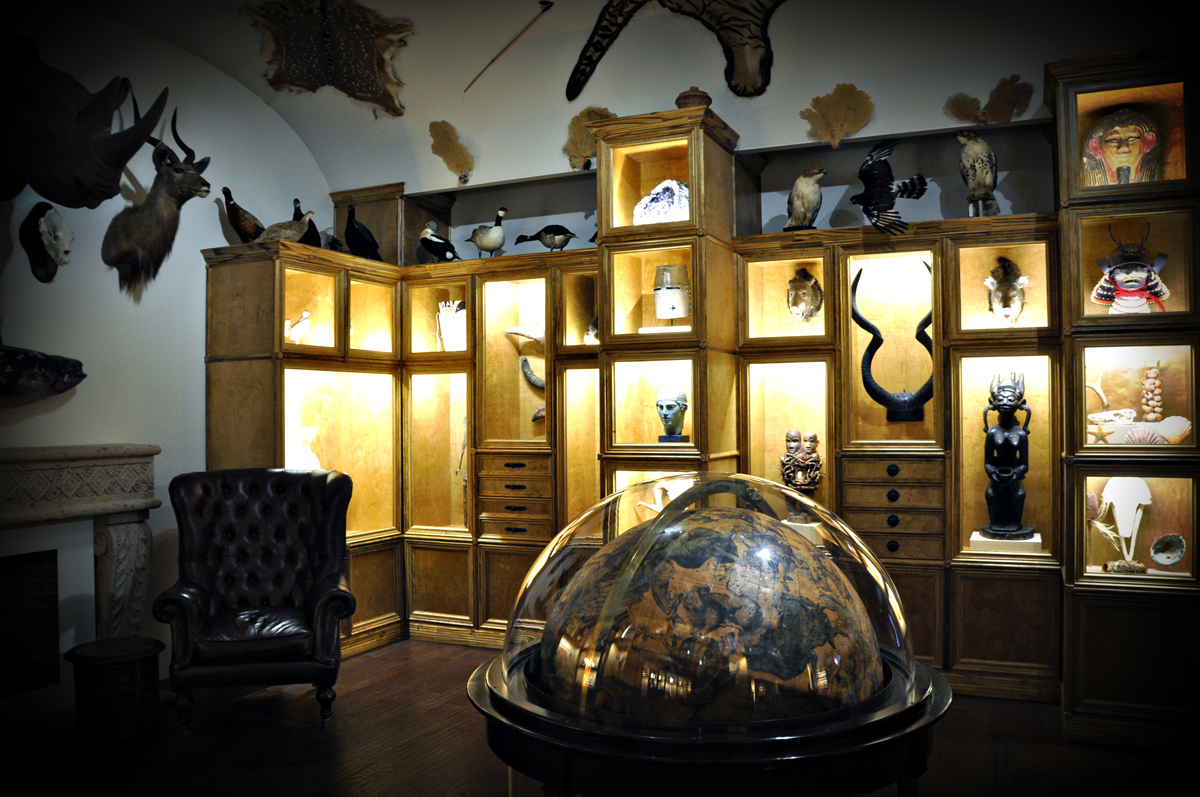
Like most people, I’m intrigued by the unknown. I think that’s what draws me to Imperato and his collection. We don’t know much about this…apothecary? Or was he an alchemist? I decided to make Imperato and his cabinet of curiosities, a kind of precursor to the natural history museums of today, the focus of my graduate thesis. Enter HMNS.
I came to HMNS after hearing that they were bringing Ferrante Imperato’s collection over from Naples, Italy. They were going to have his actual collection. It was a researcher’s dream. I reached out to HMNS and began studying the numerous objects and texts left behind by Ferrante and his son, Francesco.
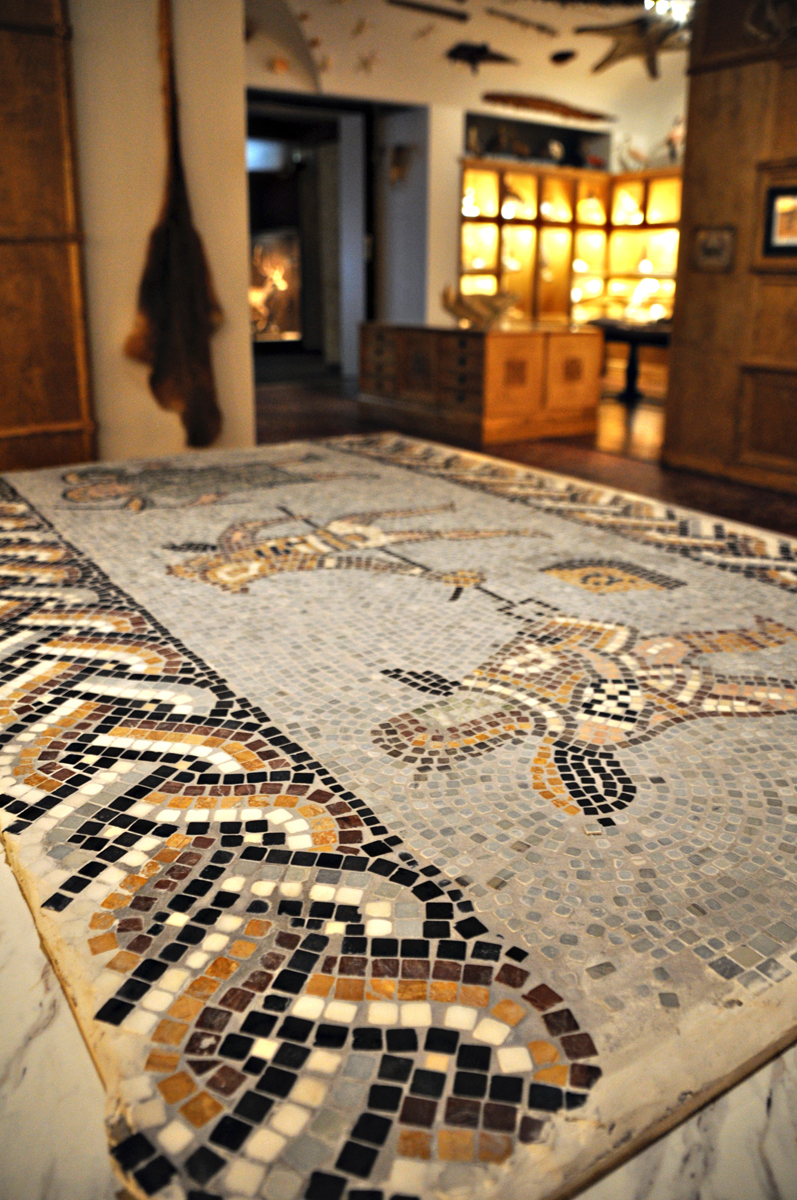
I combed through original texts and flexed my semi-fluent Italian language muscles. I was particularly entranced by Imperato’s Dell’Historia Naturale from 1599. This engraved text outlines Imperato’s natural history collection, making it one of the first texts to do so. While I was interested in the extensive catalog of his collection and his reasons for collecting, I couldn’t help but notice some strange references throughout his texts. The word tesoro appears several times in Imperato’s writings. Tesoro is the Italian word for “treasure.” Of course, since Ferrante Imperato was an enthusiastic collector, I assumed he was referring to his collection as a treasure. As an 8-year-old, I frequently boasted about my collections of “treasures” though my treasures mostly consisted of dirt clods from my backyard excavations that I had yet to “prep out” as I explained to my parents. However, as I continued to read Imperato’s texts, I came to realize he wasn’t referring to his entire collection as a “treasure.” He was referring to a single object, a tablet.
I’m a firm believer that Ferrante Imperato was an alchemist as well as an apothecary. In my quest to understand what drives people to collect, it seems that Imperato was determined to use his collection to find natural remedies for a variety of ailments. He also frequently discussed the transformation of matter, a concept near and dear to alchemists’ hearts. Could this tablet be part of Imperato’s work as an alchemist? And more importantly, could this object be in the very Cabinet of Curiosities I’m studying right now?
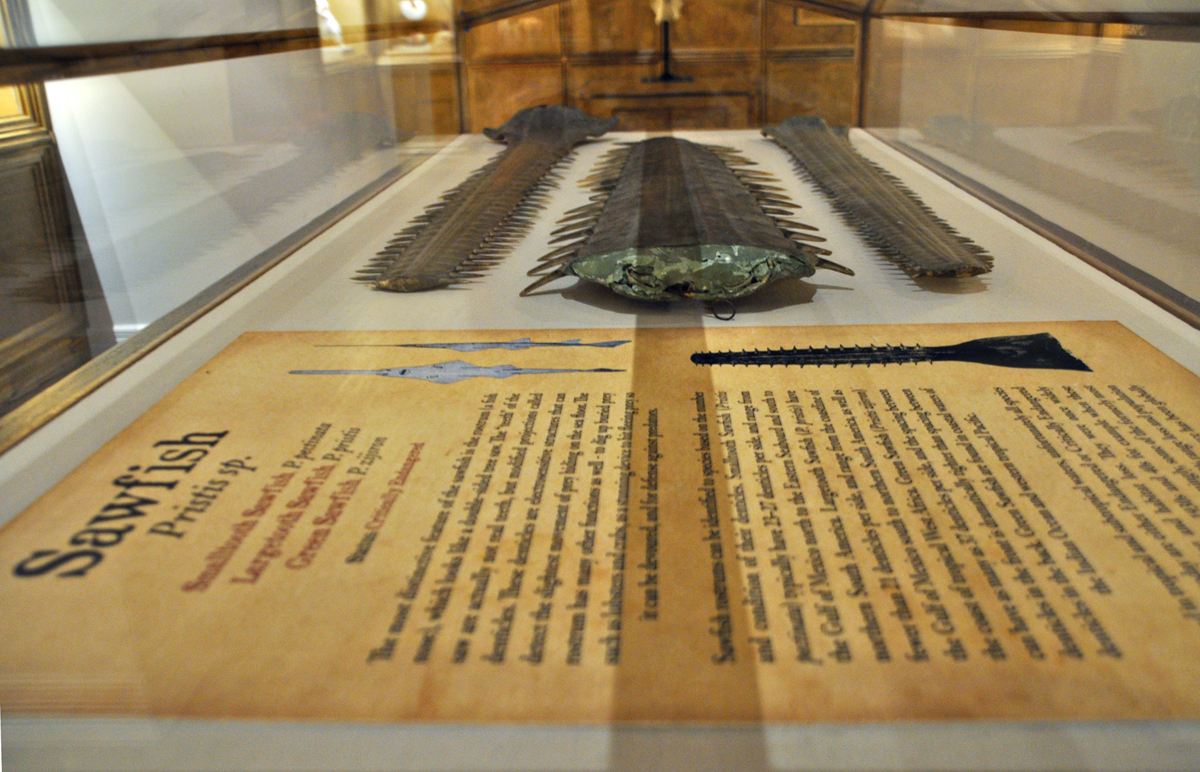
While I love talking about my research and the topic of my thesis, as any graduate student does (seriously, I’ll talk about it for hours), I really wanted to write this guest blog to ask for help. I need to solve the mystery of this tablet. I don’t have much longer to work with the collection before my thesis is due and my time at HMNS is up! So here I am, reaching out to the HMNS community for help. Can you unlock the secrets and solve the riddles of Ferrante Imperato’s Cabinet of Curiosities before it’s too late?
If your group is interested in helping Julia solve the mystery of Imperato’s lost tablet, email education@hmns.org for more information on this special Curious Late Night program.


